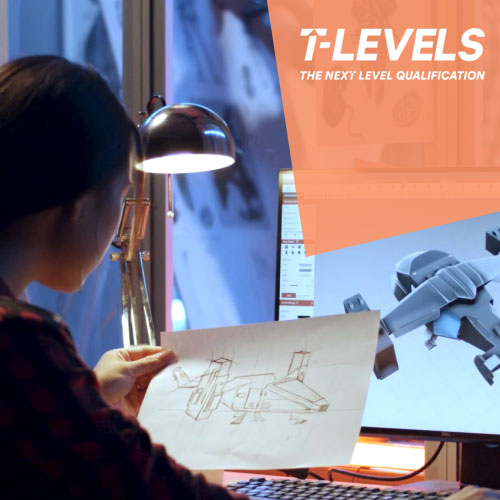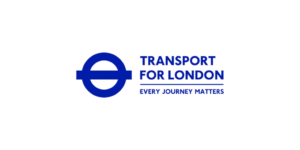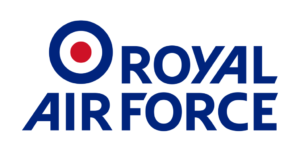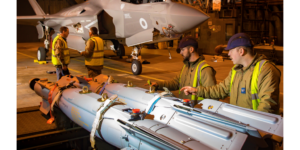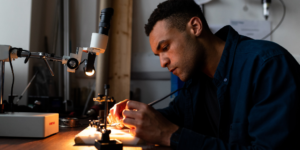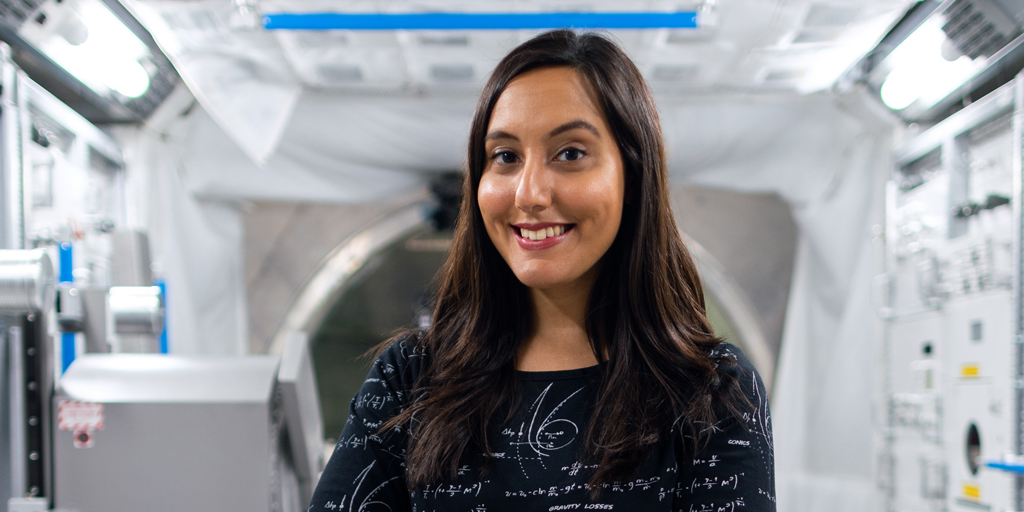
Aerospace Engineer careers guide & job description
In your amazing job you get to design, build and take care of planes, satellites… and spacecraft..
Do you ever look at helicopters or NASA rockets and wonder how they work?
Could one-hour flights to America or space travel tourism to Mars become a real thing in YOUR lifetime?
Aerospace engineers ask questions like these. It’s their job to look to infinity and beyond.
Travel always needs to be faster, cheaper, safer, further. As an aerospace engineer it’s your job to design, repair and test aircraft and spacecraft that help us broaden our horizons. Working with commercial planes, missiles, space vehicles and satellites that study Earth’s climate change from space… there are many ways to spread your wings. Aerospace engineering is a career choice that’s out of this world.
Aerospace engineering real-life stories: Meet Shefali
Oxford Dynamics co-founder Shefali Sharma says that the UK space industry NEEDS more young people!
How much money can you earn as an Aerospace Engineer?
These LMI Job Trends give you a sneak peek of how much you could earn starting out for this career, and how much your salary could grow with experience.
Average salary for Aerospace Engineering jobs
Recent labour market information says you can earn on average between £20,000 and over £45,000 a year as an aerospace engineer in the UK.
Your starting salary can vary because of factors like level of experience, training, or location. Your salary will increase over time as you build skills, knowledge and experience.
Skills you need to become an Aerospace Engineer
Useful skills to put in your CV:
- Having the ability to interpret diagrams and drawings
- IT skills
- Great problem solving skills and being able to think logically through challenges
- Good teamwork skills – you’ll often work on a small part of a huge project and everyone needs to share what they know!
- Being able to handle high levels of responsibility
- Strong knowledge of aircraft technology
- An interest in engineering, construction and design
- Having good communication skills to help you communicate ideas and challenges
- Being very aware of health and safety (which you’ll pick up through training)
Top Skills-boosting Tip
It’s more of an observation than a tip – unfortunately, you need to have normal colour vision to get ahead in this career. If you have colour vision deficiency that could impair your continued success, so it’s better to know now and consider your options.
How Do You Get These Skills?
Vocational qualifications and work experience will help you build these skills over time.

Build Your Skills With the FREE Young Professional Programme
What Qualifications & Training Do You Need For Aerospace Engineering Careers?
School, college and training
To become an aerospace engineer, you’ll usually need to have 5 GCSEs (grades 9-4 or A*-C) and 3 A-levels including maths and a science related subject.
One of the most direct routes is to go to university and study for an aeronautical engineering degree. Many UK universities offer aerospace engineering courses.
Most aerospace engineers are usually professionally registered as either Incorporated or Chartered engineers, which is useful to know – it can help you get work all over the world.
Fun Fact: The UK aerospace industry employs over 250,000 people and has an annual turnover of more than £18 billion. That leaves room for you to get in on the action.
Vocational Qualifications
As an alternative to A-levels (or a top-up), you can study a vocational course. You could think about doing an HNC/HND or foundation degree in one of the following subjects:
- HND/HNC Aerospace engineering
- HND/HNC Aeronautical engineering
The Engineering Council has a list of qualifications and courses.
T-Levels
T-Levels are a choice for learners after GCSEs alongside apprenticeships and A-levels. You can do a T-Level in Engineering, Manufacturing, Processing and Control. This qualification comes with an industry placement and can help you get an engineering career.
BTECs
As an alternative to A-Levels, you can do BTECs from the age of 16. The Level 3 BTEC Extended Diploma in Aeronautical Engineering gives you the specialist knowledge and technical skills to progress into, for example, an apprenticeship or employment. It’s equivalent to 3 A-Levels and can get you into some really interesting aerospace engineering degrees and HNC/HND vocational courses as a strong next step.
Apprenticeships
An apprenticeship is a scheme where you train while earning a starting salary.
With an apprenticeship (or advanced apprenticeship) you’ll have a paid job with an employer that includes structured training and learning. This training leads to an official qualification that’s recognised by employers as an industry standard.
You can apply for a training scheme as an apprentice aerospace engineering technician. You can approach companies like airline operators, airline manufacturers or engineering companies. You’ll usually start on their scheme, and working towards an engineering licence (known as a Part 66) which means you can work as a qualified engineer. You can then continue your training up to degree level.
HNC or HND courses in relevant subjects are also available.
Find out more with Careers in Aerospace.
You can seek out aerospace engineering apprenticeships with organisations like Find an Apprenticeship.
University degrees and graduates
The university route is the typical route into aerospace engineering.
You can study for a foundation degree or degree in aerospace engineering, avionics or a related subject like:
- Electrical/electronic engineering
- Mechanical engineering
- Manufacturing/product engineering
- Physics or applied physics
- Software engineering
- Mathematics
Check out the Association of Aerospace Universities for more information about courses you can do.
UCAS has more information on degree courses and entry requirements.
Engineering Career FAQs & Insights
Is there something you’d like to know about engineering careers? Maybe we can help!
Career Progression
You can specialise in fields like:
- Aerodynamics
- Fuel efficiency
- Space technology
- Investigating air accidents.
With time and experience you can be promoted in both the private and public sector. Skills that you’ve learnt while being an aerospace engineer can be extremely helpful in other areas of engineering, too.
Other experienced aerospace engineers go into senior management roles, or academia. There are also opportunities in consultancy.
What Work Experience Do You Need For Aerospace Engineering Jobs?
Work Experience Tips
It can help you decide if this is the right career for you if you have previously done work experience in a science or engineering environment.
Any work experience where you have demonstrated your engineering skills can help your application.
Examples of relevant work experience include:
- Work shadowing (even if it’s just for a day)
- Work placements in a company
- Work experience placements on a college or university course
If you’re a Year 12 student, you can apply for a Nuffield Research Placement. Over 1,000 students a year get the chance to work with scientists, mathematicians and engineers from all kinds of universities and organisations.
If you’re aged 21 or under, you could build experience and skills relevant to design and engineering by becoming an Industrial Cadet. You’ll join other students from local schools to take part in industry based activities with a local employer. Visit industrialcadets.org.uk for more info.
Volunteering Tips
If you want to get your first taste of aerospace engineering, your best bet is to volunteer in the field.
There are lots of places where you can start picking up skills and understanding of the work, including:
- Aircraft heritage museums
- Airfields
- Flying clubs
You’ll also pick up newfound respect for those brave folk and their flying machines!
If you’re still at school, one way to expand a range of engineering skills (including flight) is to join a school STEM club.
What Does an Aerospace Engineer Do?
As an aerospace engineer, you’ll consider new and better ways of doing things… like researching new materials that could be used to keep things streamlined and reduce weight. Aerospace engineers design, research and build all kinds of aircrafts made up of parts that have to make a perfect whole. Just as an example, you could be exploring the wings, hydraulics, the aircraft controls, elevators and flaps, the engine and the fuel storage.
Research is a big part of the role. You’ll often try to innovate and develop systems and processes that are used.
From your research, you might come up with a smart new design for an aircraft then get to work on its construction.
That’s how the future is built – one new idea at a time.
How To Find Aerospace Engineering Jobs: Next Steps
To find jobs for young people in this role, search on jobs boards for early career roles and opportunities with these words in the title:
- Aerospace engineering technician apprenticeship
- Aeronautical engineering apprenticeship
- Aircraft engineering apprenticeship
- Aircraft technician jobs
- Aerospace engineering graduate schemes
- Aerospace engineering degree apprenticeships
You can also take a look at our database of local opportunities to see if there are any relevant jobs, work placements, or careers events and workshops to help you get started.
These websites might be able to help you find aerospace engineering experience or a role that’s a good fit for you:
- Careers in Aerospace
- Association of Aerospace Universities
- CILT (FTA)
- EngineeringUK
- Tomorrow’s Engineers
- Institute of Engineering and Technology (IET)
- Science, Engineering and Manufacturing Technologies Alliance (SEMTA)
- Engineering Council (ECUK)
- Women into Science, Engineering and Construction (WISE)
Get Into Manufacturing & Engineering Careers With Youth-Friendly Employers
These employers and organisations are here to help. They care about your potential and desire to learn, not just your qualifications and experience. They may be able to offer traineeships, apprenticeships, graduate schemes, first jobs, careers advice, wellbeing support and much more.
Engineering Career Tips & Opportunities
Engineering & Manufacturing Career Guides
View job descriptions with average UK salary, useful qualifications and a variety of routes into this career.
See All Our Youth-Friendly Employers

























YES! I Want More Free Careers Help...
So what are you waiting for? Grab your future.


